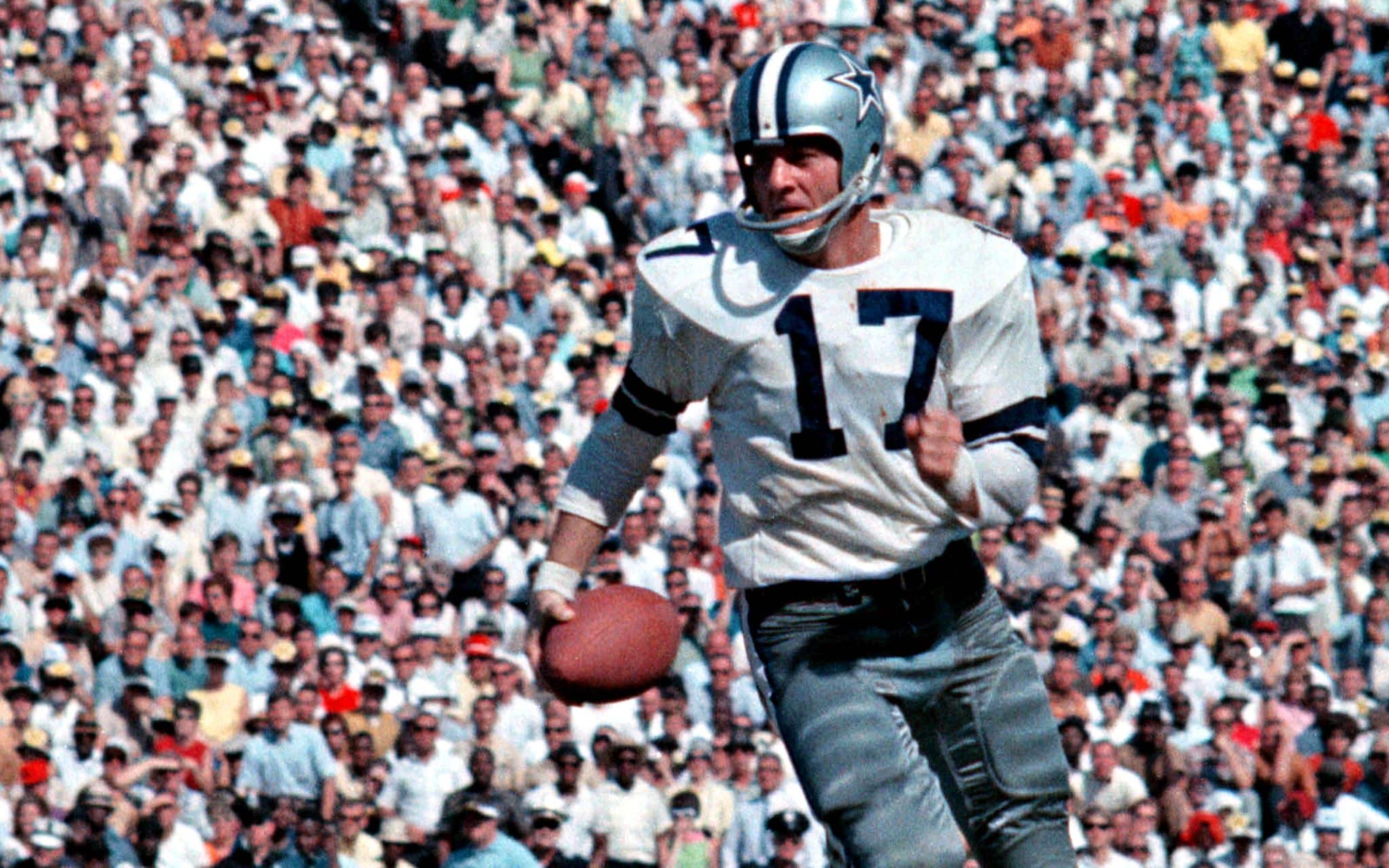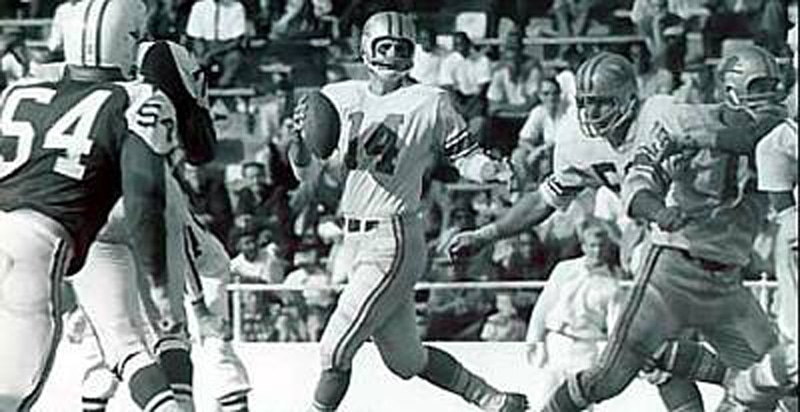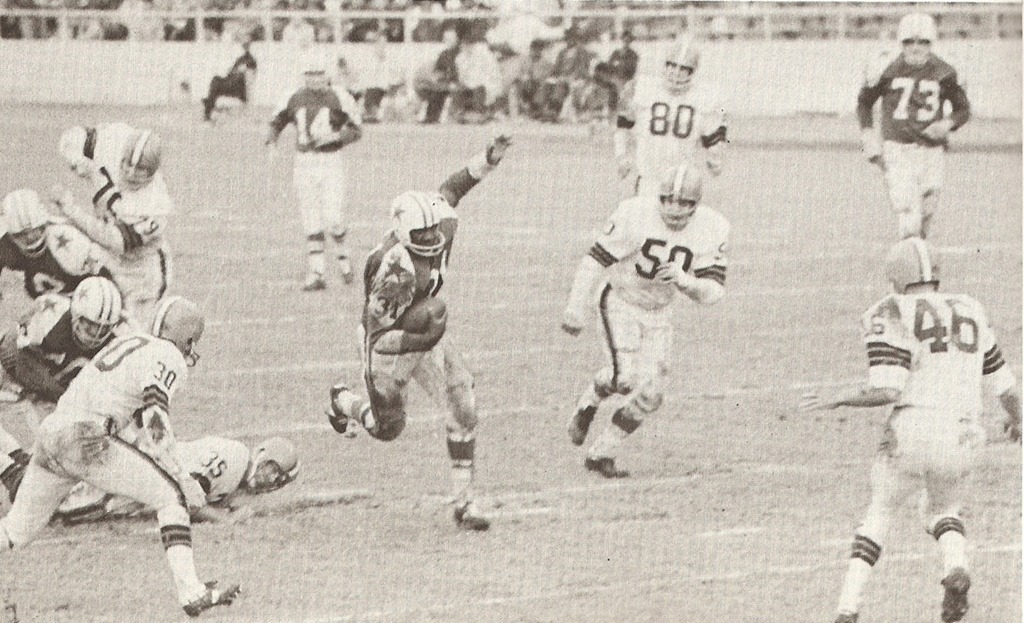The fourth season in the Cowboys’ young history began like none of its three previous seasons had. They were all alone in Dallas.
Despite winning the 1962 AFL Championship, the Dallas Texans packed up and moved to Kansas City and became the Chiefs.
The Cowboys had the town all to themselves and momentum from the 1962 season. They took a giant step backwards instead.
The Cowboys had drafted linebacker Lee Roy Jordan in the first round of that year’s draft. Jordan became a Cowboys’ legend, but the team’s defense was still bad.
A Winless Start
Dallas started the season with two home games, both blow out losses. Playing without running back Don Perkins, who would miss three games, the Cowboys opened against St. Louis.

Don Meredith’s 15 yard pass to Pettis Norman gave Dallas a 7-0 second-quarter lead. But the offense would struggle the rest of the game.
The Cardinals would score the next 34 points – seven coming on a 58-yard interception return – for a 34-7 win.
Perkins would return the next week against Cleveland and score a game-tying 19-yard rushing touchdown in the first quarter.
But Jim Brown would gash the Cowboys defense for 232 yards and two touchdowns. Cleveland would depart the Cotton Bowl with a 41-24 victory.
The Cowboys would hold a three-point lead over the Redskins after a Meredith 44-yard pass to Billy Howton in the third quarter.
But the defense couldn’t hold and Washington secured a 21-17 victory in Week 3. A furious rally in Philadelphia the next week fell short in a 24-21 loss to the Eagles.
What had started out as a promising season had turned into a hopeless cause. And there were darker days ahead.
Finally On The Board
Dallas would win three of its next six games, but all three wins were not achieved easily. The Cowboys snapped their four-game losing streak in Detroit.
But the 17-14 victory turned into a nailbiter as a late 10-0 lead was challenged by Lions backup Earl Morrall. A pair of touchdown passes to Gail Cogdill – 30 and 70 yards – made Dallas sweat out the win.

The victory was followed by a 37-21 loss at the Giants and a 27-21 loss at the Steelers. A 35-20 home victory over the Redskins was only secured with two late touchdowns.
Dallas headed west for a 31-24 loss to the 49ers after blowing a 21-10 lead. The following week they handed the Eagles a 27-20 loss at the Cotton Bowl.
The day was November 17, 1963. The next seven days were going to be the darkest for the Cowboys, the NFL, and the entire country itself.
A Game That Should Never Have Been Played
The Cowboys Week 11 opponent was the Cleveland Browns, a game scheduled to be played in Cleveland on Nov. 24th. Not 48 hours before kickoff, in Dallas, President John F. Kennedy was assassinated.
Despite calls to the contrary, the NFL decided to proceed with its scheduled games on Sunday. The Cowboys, years from their America’s Team heydays, were America’s Hated Team.

As they took the field at Municipal Stadium they were introduced only as “The Cowboys.” The fans in Cleveland were less kind.
Neither team played like they wanted to be on the field. The Browns got the 27-17 win. The Cowboys went home to a city unfairly tainted by history.
The Lost Season Mercifully Ends
The Cowboys would drop their next two games, both home losses. They fell to the Giants 34-27 and the Steelers 24-19. But they closed out the year on a high note.
Down 10 points going into the final quarter, Meredith hit Norman for a 12-yard touchdown and Frank Clarke on a 25-yard pass for a 28-24 road win over St. Louis.
In a year of disappointments, there were few bright spots. Despite only winning four games, the Cowboys would not finish last in the NFC East.
In the loss at Washington, Howton had become the NFL’s all-time leader in receiving yards and receptions. Howton would retire after the 1963 season.